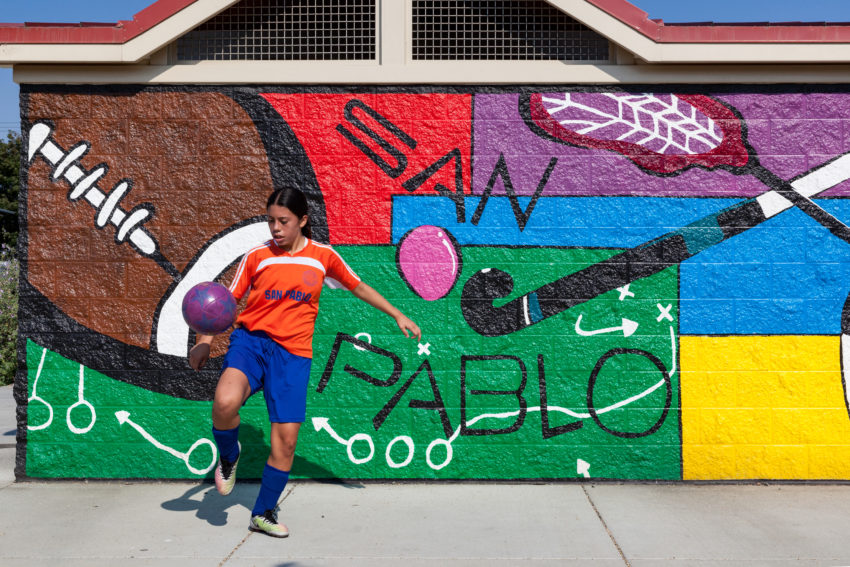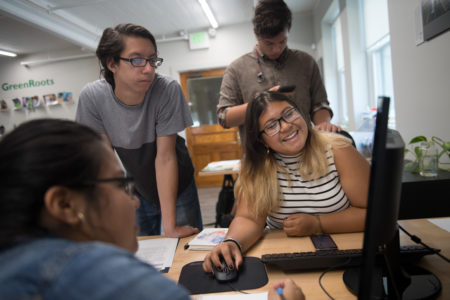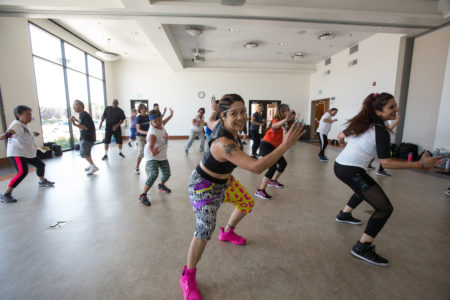
Share On Social!
Two majority-Latino communities are among the eight winners of this year’s Robert Wood Johnson Foundation (RWJF) Culture of Health Prize.
Chelsea, MA (62% Latino) and San Pablo, CA (55% Latino) were chosen from 200 applicants along with Algoma, WI, Allen County, KS, Garrett County, MD, Richmond VA, Vicksburg, MS, the Seneca Nation of Indians in Western New York.
These communities made strong efforts to ensure their residents have the opportunity to live healthier lives.
Winning communities get a $25,000 prize and will have their inspiring stories shared by RWJF.
“For the past five years, RWJF Culture of Health Prize communities have inspired hope across the country,” said Dr. Richard Besser, RWJF President and CEO in a news release. “We welcome these eight new prize communities who are forging partnerships to improve health for their residents.”

Improving Health & Well-Being in Chelsea
The city of Chelsea, MA, has been recognized by the RWJF for their innovative ideas to bring partners together to “rally around a shared vision of health.”
About 44% of the population of Chelsea is foreign born, which is the largest in Massachusetts.
“I am so very proud of the City and all of its non-profit partners,” said Tom Ambrosino, the City Manager of Chelsea. “This prestigious award from Robert Wood Johnson serves to confirm the incredible, collaborative work that occurs daily in this community to improve the health and well-being of its residents.”
Among the efforts conducted by Chelsea to improve their community’s health include working to open up the city’s waterfront, providing services to the city’s vulnerable populations, and “engaging and empowering” the city’s youth in food justice projects.
“The friendships and partnerships that have been forged in the effort to make Chelsea a healthier place to live are true and lasting and what make Chelsea such a unique community,” said Leslie Aldrich, Associate Director of Massachusetts General Hospital’s Center for Community Health Improvement.
Defining Health in San Pablo

San Pablo, CA, is minutes away from Bay Area cities Berkeley, Oakland, and San Francisco, but it is often world’s away from these cities in terms of health.
The city, one of the oldest historically Latino communities in the state, was recognized by RWJF for their efforts in ensuring better health for its residents.
“We are proud to have been selected as a RWJF Culture of Health Prize winner,” said Leslay Choy, General Manager of the San Pablo Economic Development Corporation. “By making health a priority and emphasizing inclusiveness, we are working towards making San Pablo a city where a better tomorrow for families and businesses is an obtainable reality.”
As part of their efforts to improve community health, San Pablo was lauded for creating job training programs, constructing a community center, and establishing a Youth Commission.
“Through our community efforts, San Pablo has become a regional model for how to strengthen the overall health of a community,” said San Pablo City Manager Matt Rodriguez. “Winning a RWJF Culture of Health Prize will help our efforts to continue integrating national best practice models into our community, and signifies we are moving our city in the right direction.”
Creating a Culture of Health
To become an RWJF Culture of Health Prize winner, communities had to demonstrate how they have excelled in six key areas:
- Defining health in the broadest possible terms
- Committing to sustainable systems of changes and policy-oriented long-term solutions
- Cultivating a shared and deeply held belief in the importance of equal opportunity for health
- Harnessing the collective power of leaders, partners, and community members
- Securing and making the most available resources
- Measuring and sharing progress and results
“There are now 35 prize-winning communities across the country that are thinking big, building on their strengths and engaging residents as equal partners to tackle the problems that they see,” said Dr. Besser.
By The Numbers
25.1
percent
of Latinos remain without health insurance coverage



